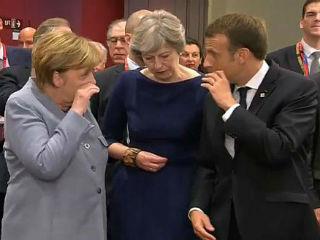Last week's meeting of the European Council had not looked likely to unlock Brexit negotiations

However, after Prime Minister May’s broad offer in Florence that no EU member state should pay more or receive less from the current EU budget, and her commitment to honour obligations taken during the UK’s membership, it is difficult to see how much more the UK government can put on the table during this first stage.
by
N. Peter Kramer
After the meeting, EU27 leaders formally announced that ‘sufficient progress’ on the for them three main issues (citizens’ rights, the border Northern Ireland-Ireland, and the financial settlement) has not been reached, and discussions on a future longterm UK-EU relationship cannot yet begin. But, it looked like the EU attempted to strike a positive tone, by green-lightning internal preparations for the next phase of negotiations, and offering assurances that a breakthrough could be reached before the end of this year.
Some leaders showed even appreciation of the progress made since talks opened. For instance, Angela Merkel, the prima inter pares, noted ‘encouraging’ signs that talks could move to trade at the next Council meeting on 14-15 December.
The real obstacle to movement appears to be the question about the money; with a deal on citizens’ rights ‘within touching distance’, and discussions on Northern Ireland unable to progress much further without a trade deal. It is clear that the EU sees an advantage in extracting as many financial concessions as possible before trade discussions. On the other side, the UK likes to use the amount to pay as a leverage for the trade discussions.
However, after Prime Minister May’s broad offer in Florence that no EU member state should pay more or receive less from the current EU budget, and her commitment to honour obligations taken during the UK’s membership, it is difficult to see how much more the UK government can put on the table during this first stage.
UK Brexit Secretary David Davis has already noted, that questions of money can be more easily unblocked by linking further contributions to participation in particular EU programmes. This would also give the possibility to signal joint commitments to securing a ‘deep and special partnership’.
The EU stays persistent. But in some EU member states some nervousness starts to be visible. A Belgian research institution found out that a ‘no deal’ could mean a loss of 5000 jobs only in the port of Zeebrugge. Not a great perspective for a country, after its agricultural sector suffered very seriously under the EU boycott of Russia and its transport sector under the 'free market rules' of the EU.







